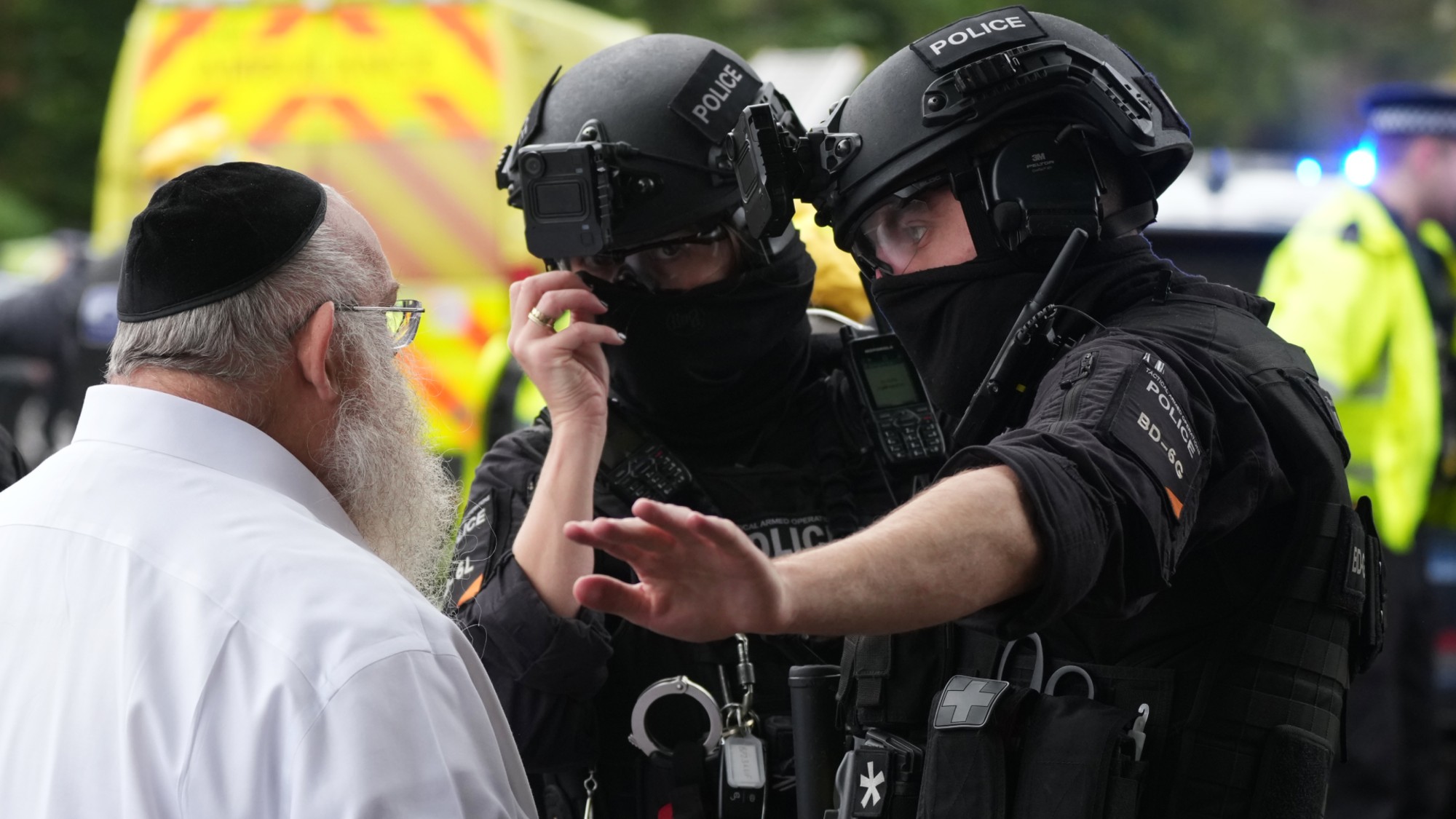Counter-terrorism referrals double after attacks
Police point to Prevent scheme success but say public still need to do more

A free daily email with the biggest news stories of the day – and the best features from TheWeek.com
You are now subscribed
Your newsletter sign-up was successful
The number of people reported by members of the public as a potential terrorism threat has doubled since the attacks in London and Manchester earlier this year.
Simon Cole, the National Police Chief Council's lead spokesman on de-radicalisation efforts, said police had received around 200 referrals to the government's counter-terrorism Prevent scheme since March, when Britain suffered the first of four deadly assaults.
This was more than twice the number received by Prevent representatives in the six months prior to the attacks.
The Week
Escape your echo chamber. Get the facts behind the news, plus analysis from multiple perspectives.

Sign up for The Week's Free Newsletters
From our morning news briefing to a weekly Good News Newsletter, get the best of The Week delivered directly to your inbox.
From our morning news briefing to a weekly Good News Newsletter, get the best of The Week delivered directly to your inbox.
Speaking to reporters, Cole said that "even though these referrals from the public are increasing", the number was still relatively low and "we still need more people to have the confidence to tell our safeguarding experts if they are worried about someone's behaviour".
Long viewed as "the most controversial strand of the government's attempts to stop Britons from becoming involved in violent extremism", says Reuters, Prevent was created after the 2005 7/7 London bombings. "Many Muslims believe it has been used as a tool to spy on their communities rather than simply sway potential militants from becoming radicalised."
But supporters such as the Dean Haydon, head of London's Counter Terrorism Command, say the scheme has achieved "fantastic results", and has helped authorities stop more than 150 people from travelling to Syria to join Islamic extremist groups in the past year.
About 60 per cent of recent referrals were related to Islamic extremists, Cole said, and 15 per cent were connected to right-wing extremism, a figure which has doubled since the murder of the MP Jo Cox last summer.
A free daily email with the biggest news stories of the day – and the best features from TheWeek.com
-
 6 exquisite homes with vast acreage
6 exquisite homes with vast acreageFeature Featuring an off-the-grid contemporary home in New Mexico and lakefront farmhouse in Massachusetts
-
 Film reviews: ‘Wuthering Heights,’ ‘Good Luck, Have Fun, Don’t Die,’ and ‘Sirat’
Film reviews: ‘Wuthering Heights,’ ‘Good Luck, Have Fun, Don’t Die,’ and ‘Sirat’Feature An inconvenient love torments a would-be couple, a gonzo time traveler seeks to save humanity from AI, and a father’s desperate search goes deeply sideways
-
 Political cartoons for February 16
Political cartoons for February 16Cartoons Monday’s political cartoons include President's Day, a valentine from the Epstein files, and more
-
 Why have homicide rates reportedly plummeted in the last year?
Why have homicide rates reportedly plummeted in the last year?Today’s Big Question There could be more to the story than politics
-
 How the ‘British FBI’ will work
How the ‘British FBI’ will workThe Explainer New National Police Service to focus on fighting terrorism, fraud and organised crime, freeing up local forces to tackle everyday offences
-
 How the Bondi massacre unfolded
How the Bondi massacre unfoldedIn Depth Deadly terrorist attack during Hanukkah celebration in Sydney prompts review of Australia’s gun control laws and reckoning over global rise in antisemitism
-
 Who is fuelling the flames of antisemitism in Australia?
Who is fuelling the flames of antisemitism in Australia?Today’s Big Question Deadly Bondi Beach attack the result of ‘permissive environment’ where warning signs were ‘too often left unchecked’
-
 ‘Stakeknife’: MI5’s man inside the IRA
‘Stakeknife’: MI5’s man inside the IRAThe Explainer Freddie Scappaticci, implicated in 14 murders and 15 abductions during the Troubles, ‘probably cost more lives than he saved’, investigation claims
-
 Ten years after Bataclan: how has France changed?
Ten years after Bataclan: how has France changed?Today's Big Question ‘Act of war’ by Islamist terrorists was a ‘shockingly direct challenge’ to Western morality
-
 Arsonist who attacked Shapiro gets 25-50 years
Arsonist who attacked Shapiro gets 25-50 yearsSpeed Read Cody Balmer broke into the Pennsylvania governor’s mansion and tried to burn it down
-
 Manchester synagogue attack: what do we know?
Manchester synagogue attack: what do we know?Today’s Big Question Two dead after car and stabbing attack on holiest day in Jewish year